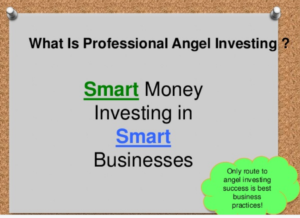With the Series A Crunch, Product Market Fit Is the New Black

Marc Michel spoke at one of our recent investor breakfasts. Marc is founder and Managing Director of Runway Ventures.
In this case, runway has nothing to do with fashion.

Marc Michel spoke at one of our recent investor breakfasts. Marc is founder and Managing Director of Runway Ventures.
In this case, runway has nothing to do with fashion.

Erin Griffin recently wrote an excellent piece in The New York Times entitled Why Are Young People Pretending to Love Work? “Never once at the start of my workweek…have I paused, looked to the heavens and whispered: #ThankGodIt’sMonday,” writes Griffin. Yet that is the culture that’s being bred, most explicitly at WeWork (now the We Company), where “Neon signs demand they “Hustle harder,” and murals spread the gospel of T.G.I.M. Even the cucumbers in WeWork’s water coolers have an agenda. “Don’t stop when you’re tired…
“It’s not difficult to view hustle culture as a swindle. After all, convincing a generation of workers to beaver away is convenient for those at the top.”

The tech cartel has been labeled many things. “Attention Merchants” being one of them. In her new book, The Age of Surveillance Capitalism: The Fight for a Human Future at the New Frontier of Power, Shoshana Zuboff has designated a new category for them: Surveillance Capitalists. “Surveillance capitalism,” she writes, “unilaterally claims human experience as free raw material for translation into behavioural data.
“When the security expert Bruce Schneier wrote that “surveillance is the business model of the internet,” The Guardian reports, “he was really only hinting at the reality that Zuboff has now illuminated. The combination of state surveillance and its capitalist counterpart means that digital technology is separating the citizens in all societies into two groups: the watchers (invisible, unknown and unaccountable) and the watched. This has profound consequences for democracy because asymmetry of knowledge translates into asymmetries of power. But whereas most democratic societies have at least some degree of oversight of state surveillance, we currently have almost no regulatory oversight of its privatised counterpart. This is intolerable.”
It was Peter Thiel who said, “We were promised flying cars. Instead we got 140 characters.” It looks like flying cars may be slowly rolling out, with Singapore’s flying taxi trial set to begin in the second half of 2019, but who the hell are those 140 characters to whom Theil might have been referring? As a co-founder of PayPal and an early investor in Facebook, LinkedIn, Yelp and Quora, he certainly knows what sorts of characters tech can breed.
We’ve been involved in the tech world since the nascent days of Web 1.0 in New York City – with monthly trips to Silicon Valley at the time, as well – and over the years, have encountered many of those characters, upfront and personal, for better or for worse. Of course we have stories to tell, but that’s for a later date and a much longer opus.
Some were true innovators who created platforms and software and devices that forged an entirely new industry. You may not be familiar with their names, but their contributions should never be forgotten. Some forgot their original drivers, whether it was to not be evil or to connect the world, tracked the world’s population in ways and to an extent to which it had never been tracked before, storing it and parsing out that information to the highest and/or any and all bidders, and paying no heed to the concept that we might have the right to be forgotten.

As you know, we’ve been wondering about who those 140 characters are who Peter Thiel may well have been referring to when he said, “We were promised flying cars. Instead we got 140 characters.”
Since we’ve personally been in the industry since the early days of Web 1.0 in New York and spent a considerable amount of time in Silicon Valley as well, we’ve decided to take it upon ourselves to attempt to identify some of those characters, many of whom we’ve met and/or have gotten to know. Over the years, we’ve seen people and companies come and go. Some were bad timing. Many were simply bad ideas. Some were acquired for unbelievable amounts of money, only to disappear forever, leaving the then suddenly wealthy founders looking like geniuses. Tech is a constantly shifting landscape and people and companies come and go and fortunes made and lost at Internet speed.
Here are our picks for the next 40 of the 140, with some anecdotes and insights on the developing industry and its rising stars and investors, in no particular order. Without further ado, we’re letting this baby fly. Onward and forward.

When he spoke at our investor breakfast a couple of months back, New York Angels chairman Brian Cohen said that Bill Gross, founder of idealab, a startup studio and arguably the prototype for tech accelerators, asked what was the one criteria that mattered most in a successful exit of a company. Was it the amount of money they raised? Or was it smart leaders that mattered. After all the research that he had done at idealabs, Gross concluded that it was timing that was the #1 criteria for success. Timing, meaning when you went to market – think Six Degrees, the first social network in the Web 1.0 days, v Facebook.
It’s all about timing.

Much has been written about AI, both utopian and dystopian. Elon Musk has launched a billion dollar crusade to stop the AI apocalypse. Bill Gates insisted that it was a threat, until he changed his mind. Mark Zuckerberg is a big supporter, insisting that “AI makes human life better.” Then again, he also told Congress that Facebook is not a publisher – until the issue came up in court: Is Facebook a publisher? In public it says no, but in court it says yes.
Remember when Facebook apologized after ‘the algorithm’ blocked the Declaration of Independence as ‘hate speech?’ And that was just an algorithm that was wrong or defective.

Jeff Bezos seems to have made certain people in Washington (DC) quite happy last week. Of course, our red flags always go up with any announcement.
The big news was that Amazon has agreed to give all warehouse workers a $15 an hour minimum wage, thus satisfying Bernie Sanders, who had been after the company – and world’s richest man Jeff Bezos – for quite some time. As the AP reported, Amazon jumps out ahead of its rivals and raises wages to $15, and Sander (D, VT), hailed it as “a shot heard round the world.”